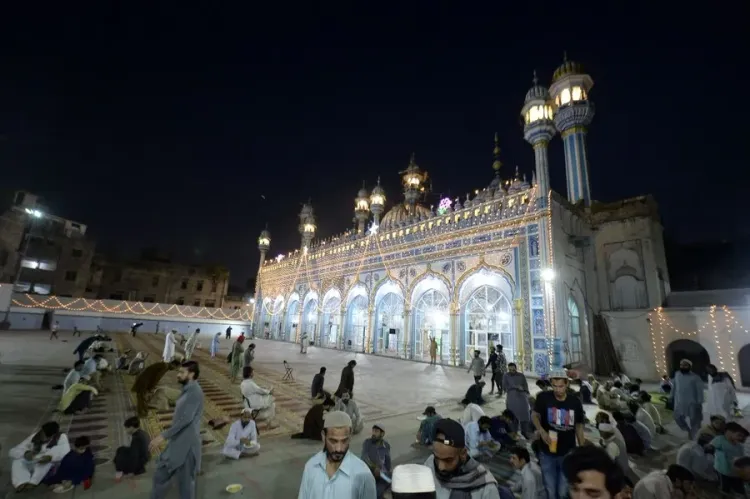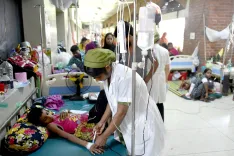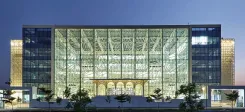Does Pakistan Have More Mosques Than Schools and Hospitals?

Synopsis
Key Takeaways
- Pakistan has over 600,000 mosques.
- Only 269,000 schools are available.
- Healthcare is severely lacking, with one hospital for every 2,083 people.
- 10.9 million are engaged in informal sectors like livestock and online services.
- Only 250,000 businesses are formally registered.
New Delhi, Sep 7 (NationPress) The inaugural Economic Census of Pakistan, conducted since its independence in 1947, reveals a shocking reality: the nation boasts more than twice the number of mosques than schools. This is alarming, especially considering the limited number of factories and hospitals available for a population of 250 million, where a significant portion lives beneath the poverty line.
The census indicates over 600,000 mosques and 36,000 religious seminaries, whereas there are merely 269,000 schools and 119,000 hospitals. This disparity highlights profound systemic challenges that obstruct educational access, strain healthcare resources, and curtail the country's economic growth.
The absence of higher educational facilities is equally concerning, with just 11,568 colleges and 214 universities in the nation, reflecting the dire state of human capital.
In terms of healthcare, the situation is grim, with just one hospital for every 2,083 individuals in a nation grappling with malnutrition and disease.
The census also uncovers that 10.9 million people are engaged in sectors such as livestock farming, tailoring, food packaging, and online services, showcasing the lack of formal job opportunities. Among these, 5.6 million are involved in livestock rearing, 419,000 in clothing production, and 93,000 provide online services, indicating a hardworking but underserved populace.
It reveals that there are 7.143 million businesses employing 25.344 million individuals, yet only 250,000 of these are officially registered with the Securities and Exchange Commission of Pakistan, exposing the informal nature of the underdeveloped economy. The business landscape is primarily dominated by micro and small enterprises, with 95 percent of establishments employing fewer than ten people. The services sector comprises nearly 58 percent of the workforce, while production and manufacturing lag significantly.
The census also highlights regional inequalities, with Punjab and Sindh surpassing Khyber Pakhtunkhwa and Balochistan in terms of economic establishments and social infrastructure.
These findings were disclosed by Planning Minister Ahsan Iqbal, who noted that this marks the first census of its kind, contrasting with neighbouring nations that have conducted several economic censuses over the years.
Pakistan’s inaction is perceived as a reflection of the military's dominant influence over governance, prioritizing defense spending to ensure its own stability.









